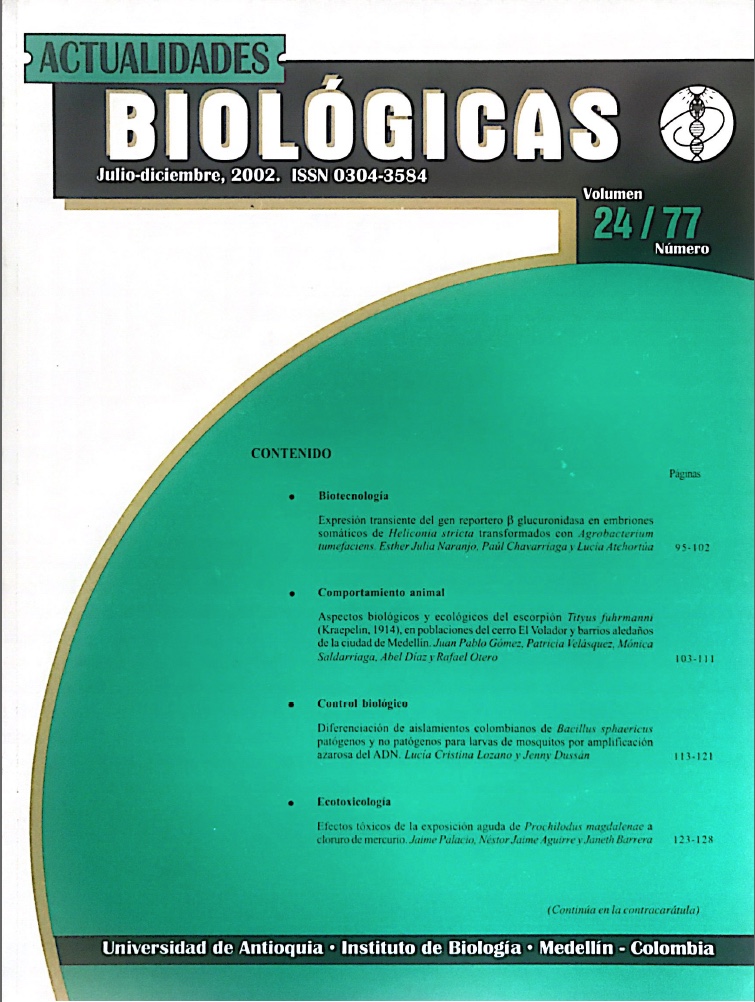Efectos tóxicos de la exposición aguda de Prochilodus magdalenae a cloruro de mercurio
DOI:
https://doi.org/10.17533/udea.acbi.329536Palabras clave:
Prochilodus magdalenae, cloruro de mercurio, efectotóxicos, concentración letal media (CL50)Resumen
Alevinos de Prochilodus magdalenae (bocachico), adquiridos en cultivos de peces, fueron expuestos durante 96 horas a cinco concentraciones agudas de mercurio (0.1, 0.13, 0.17, 0.22, 0.29 mg/l) en un sistema estático con renovación a las 48 horas. Durante la aclimatación los peces se mantuvieron en agua de consumo declorinada filtrada con carbón activado. La tasa de recirculación del agua fue 50 min y los niveles de oxígeno fueron superiores a 80% de saturación. Los peces fueron alimentados diariamente con Tetramin y el suministro de alimento se interrumpió doce horas antes del inicio de los experimentos. Durante la aclimatación y las pruebas de toxicidad la temperatura, el pH y el oxígeno disuelto variaron en un rango estrecho. La concentración letal media (CL50) del mercurio se calculó para 24, 48, 72 y 96 horas mediante los métodos promedio del ángulo móvil y probit. Los resultados a las 96 horas indicaron gran homogeneidad de la concentración letal media al variar entre 0.132 y 0.133 mg/l de cloruro de mercurio, y una menor sensibilidad de P. magdalenae que Poecilia reticulata a esta sustancia.
Descargas
Descargas
Publicado
Cómo citar
Número
Sección
Licencia
Los autores autorizan de forma exclusiva, a la revista Actualidades Biológicas a editar y publicar el manuscrito sometido en caso de ser recomendada y aceptada su publicación, sin que esto represente costo alguno para la Revista o para la Universidad de Antioquia.
Todas las ideas y opiniones contenidas en los artículos son de entera responsabilidad de los autores. El contenido total de los números o suplementos de la revista, está protegido bajo Licencia Creative Commons Reconocimiento-NoComercial-CompartirIgual 4.0 Internacional, por lo que no pueden ser empleados para usos comerciales, pero sí para fines educativos. Sin embargo, por favor, mencionar como fuente a la revista Actualidades Biológicas y enviar una copia de la publicación en que fue reproducido el contenido.












